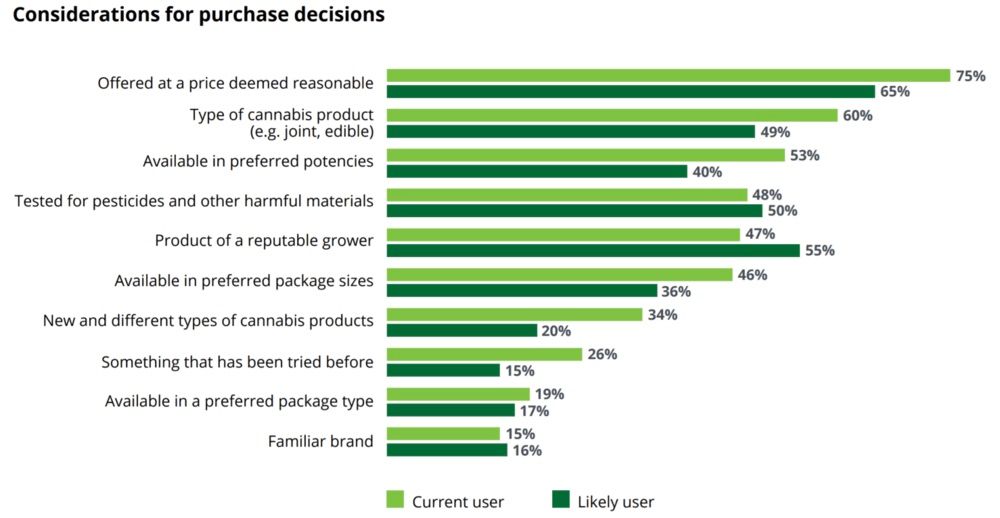By: Jackie C.
If you ask anyone who works in cannabis today, they will talk about “seed to sale,” “cultivation,”or how they want to turn that abandoned warehouse into a grow facility. If you have been to any trade show, you have seen the rows of dirt, lighting, and fertilizer vendors. There is one problem with all of this: growing marijuana in most of the continental U.S. is neither efficient nor sustainable at the current scale. Other countries can produce it cheaper.
I have been a legal cannabis industry follower and participant for the past two and a half years, observing and participating in the industry with a healthy dose of skepticism and optimism. I myself do not consume TCH regularly, but I credit CBD to greatly improving my life. My motivations for working in the industry focus around economic opportunities, social justice, and medicine. I’m also a bit of a natural skeptic, and I have seen imperfections in this budding industry that must be dealt with for it to make a smooth transition into the mainstream.
There are many factors that will determine how and when the U.S. federally legalizes cannabis for adult use, ushering in a “New World Order” on global cannabis legalization and international trade. Will Trump win in 2020? Will the Democrats take full control of Congress? Will there be new members of the Congress and Senate who will finally push federal legalization? Will the companies that can make cannabinoids in a lab, backed by Cronos and Aurora, be able to make products that are better and cheaper than “natural” grown cannabis? Will there be a pushback from the consumers who want “analog” cannabis products like flower and flower derived oil?
While these larger political and production issues are critical, the question of price is also important to keep in mind during discussions of legalization. For example, Deloitte did a study in Canada that found the typical consumer cares mostly about price.
Deloitte’s Key Findings:
- Brand: was the least important purchasing consideration, cited by only 15% of current users.
- Price: was the most important purchasing consideration, cited by five times as many current users (75%) as brand.

IMPORTING CANNABIS:
On a recon assignment to Thailand, I was able to meet with Jim Plamondon, VP of the Thai Cannabis Corporation. Their mission is to enable cannabis consumers to improve the world by purchasing only those cannabis products that most sustainably reduce poverty, respect the environment, and raise quality at a respectable price.
Cannabis is not an easy plant to grow in the first place. Many wanna-be growers fail at least their first few times. Even if cannabis had been legal in the U.S., Americans would have only 300 years of cultivation and breeding versus thousands of years in Thailand. Oh, you are a third generation farmer from Humboldt? A Thai person would reply that their family has been growing and cultivating since before the time of the Buddha… (over 2000 years!) In addition, Thailand has a nearly ideal climate and global latitudinal position with about twelve hours of sunlight and darkness year-round, and the buds are perennial, increasing the ROI. To give a bit of context, 9% of household electricity in California is used to power indoor grow facilities. Thai cannabis could cost up to 87.5% less than U.S. wholesale prices per ounce. Other potential highly-economical grow areas include Jamaica, parts of Africa, and Colombia. Growing cannabis, just like other crops, is not entirely efficient or sustainable at all latitudes and climates. That is not to say that all U.S. production would fall off; if you go to Whole Foods, for example, you will see U.S. and locally grown food as well.
How would importing cannabis be legal? It isn’t yet, but, “Inter se modification would facilitate the development of what, within an international policy environment characterized by faux consensus, is increasingly necessary: a ‘multi-speed drug control system’ operating within the boundaries of international law, rather than one that strains against them.” (wola.org) Essentially, countries who opt for cannabis legalization could trade with each other as long as certain rules and conditions are met. For further information please read the linked report. Trade agreements could be reached in two years and it could already be in effect by the time the U.S. legalizes adult use federally.
Mr. Plamondon was previously an executive at Microsoft and currently sees a real opportunity in the Thai cannabis industry. You can follow the Thai Cannabis Corporation blog here.
Jackie C. is a Honeysuckle Magazine contributor and responsible travel activist. You can see more of her work on zeroimpacttravel.com.



